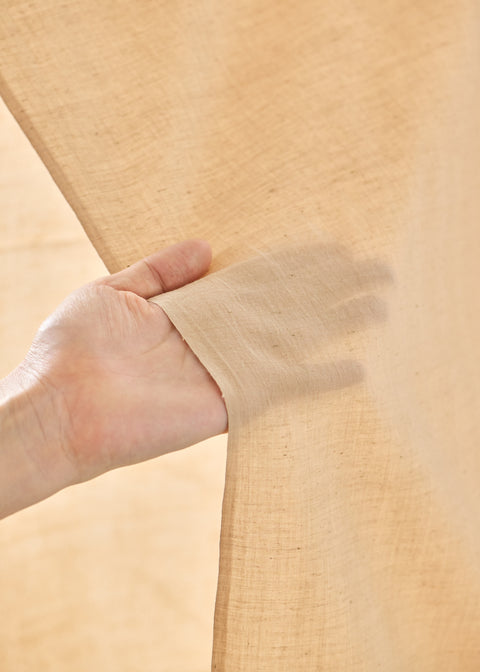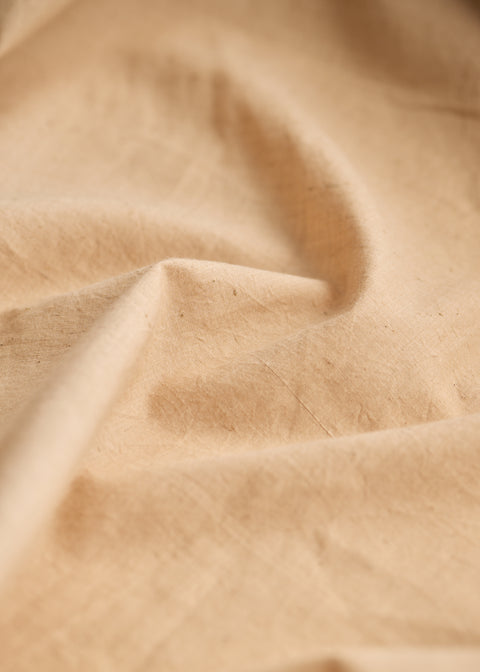

Naturally Dyed Muslin D
*The displayed price is per 10cm, and you can purchase in 10cm increments. For example, if you want to purchase 80cm, please select "8" as the quantity.
Product Description
Muslin is an ultra-fine count Bengal cotton cloth that has been woven in Bengal since ancient times and has fascinated people all over the world. The current Dhaka region of Bangladesh has been known as the main production area.
However, the original species of the short fibers (Formally we had explained that as "long fibers", but now we corrected it as "short fiber") essential for muslin are almost extinct (only remains in museums), and the coastal areas where they have grown have been lost due to years of erosion. Today, it is said that it is quite difficult to restore the same specifications as those days. (Experimental reproductions are under going.) On the other hand, in West Bengal, India, there is a strong movement to promote handwoven cotton of 100 counts or more as modern muslin. In addition, there are still a few craftsmen who challenge ultra-fine counts such as 500 counts.
Muslin D was developed amid such trends, and is currently woven with spun yarn for the warp and approximately 300-count ambar charka thread for the weft. It is soft to the touch, slightly translucent, and has a particularly delicate impression among fine-count kadis.
* Count is the number of hank (thread bundle) that can be taken from 1kg.
Approximately 1000m of thread can be obtained from 1hank. The higher the number, the thinner the thread; the lower the number, the thicker the thread.
Size
Fabric width: approx. 110 cm
Materials
Cotton
Region of production
West Bengal
System of design
By craftpersons
Spinning
Hand spinning with ambar charka
Weaving
Plain weaving by hand
Dye
Undyed-Natural
Before you purchase
* This product is also carried in the stores, so it may occasionally be sold out at the time of your order through the website. Unfortunately if that the product is out of stock after you placing the order, we will contact you. We appreciate your understanding.
* In case of ordering fabrics with multiple quantities, we will send you the goods in the same or simillar shades as much as possible, but in case we can not fullfil your request, we will accept returns at your expense. Please consult with us. (Please note that we do not accept returns after cutting or processing.)
* Hand-spun yarn is mainly made by women in the village using an efficient modern spinning wheel called an “Amber Charka.” When the yarn breaks, it is spun by hand, resulting in neps, which is a characteristic feature.
* Most of hand-spun and handwoven fabrics are produced in village huts, and as a result, threads or grass may occasionally be mixed in. Additionally, there may be uneven areas, wrinkles, or slight discoloration caused by thread breaks, as well as unavoidable minor stains. Please understand that these are characteristic features of those fabrics.
* Depending on the material, friction during use may cause pilling or fuzziness. Excessive friction or pressure can cause a fabric damage, so please avoid such a situation.

